What did Tim Cook REALLY say about Apple Watch sales?
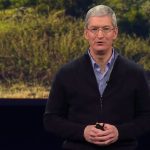
Today's question: Is Apple's CEO hiding weak smartwatch sales or does he demonstrate transcending leadership by positioning for greater platform success—taking the long view? The answer lies perhaps in his comments made during yesterday's fiscal Q3 earnings conference call.
In data released today, Strategy Analytics puts Apple Watch shipments at 4 million for the April quarter. Yesterday, Canalys gave estimate that is 200,000 units higher. Posting to BetaNews just minutes ago, analyst Sameer Singh calculates 3 million devices shipped and 2.5 million sold. Apple doesn't share the real numbers that it surely has. In chief executive Tim Cook's remarks that follow, there are hints—but little more. Something he says later in the conference call is quite provocative; genius and contrary-logistics-thinking. Either he's hiding or abiding.
Apple withholds smartwatch sales data
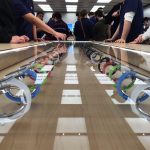
All eyes turned to Apple this afternoon as the world's most profitable tech company announced the first full quarterly results that include its smartwatch. You could hear a collective pin drop across the Internet as U.S. stock markets closed and everyone waited wondering: Flop or Not?
We don't know. In the press release, CEO Tim Cook refers to the "great start for Apple Watch", but there's no data in the PR or in the 8-K filing with the SEC. The device fits into the "Other" category. During Cook's earnings conference call opening remarks hard data also is lacking.
Apple Q3 2015 by the numbers: $49.6B revenue, $1.85 EPS
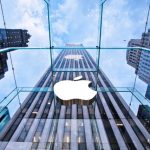
After the closing bell today, Apple announced results for fiscal third quarter, which largely is congruent with calendar Q2 (End date, April 27). Broadly: $49.6 billion in sales, $10.7 billion net income, and $1.85 earnings per share. Year over year, revenue rose 33 percent and EPS by 45 percent. Apple guidance before the big reveal: Between $46 billion and $48 billion revenue. Wall Street consensus was $49.31 billion sales and $1.81 EPS. The Street's estimates ranged from $46.9 billion to $53.64 billion.
Gross margin reached 39.7 percent compared to 39.4 percent annually and 40.8 percent sequentially. Company guidance: 38.5 percent to 39.5 percent. Once again, international sales accounted for most of the quarter's sales: 64 percent, which is up from 59 percent the previous year but down from 69 percent three months earlier.
5 things I like about Apple Watch
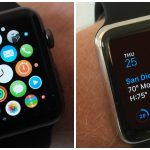
In another universe, I don't own Apple Watch. Either LG Watch Urbane or Moto 360 adorns my wrist. But in this one, I not only sold my soul to the bitten-fruit logo company but I grew to enjoy the servitude. Thirty-three days after purchasing the smartwatch, I can express satisfaction, even if sometimes muted, with the user experience.
I prefer Android Wear for its fantastic contextual utility, but find greater overall usability and positive emotional response from living with Apple Watch. As expressed in the previous post, I suspect that returns rates may be high for this device—at least compared to others that Apple produces. The real measure of any product's success is: 1) Did you keep it?; 2) Do you use it?; 3) Do you enjoy it?
Did you buy and return Apple Watch?

Apple announces on Tuesday quarterly results that will for the first time include its wearable. Already, ahead of the big day, speculation soars about Apple Watch sales. Expect drama for sure, as CEO Time Cook explains how supply shortages constrained availability, leaving investors with more questions than answers.
I am more interested in data the company likely won't reveal: return rates. I took back two. The first: I ordered online but sales started, after long delay, in the retail store before the device arrived. Rather than wait another week, I bought there and later returned the other, which the shop specialist sold seconds afterwards to a family that had come in looking for Apple Watch only to be told the Sport sold out. The second: A week later, I exchanged the aluminum timepiece for stainless steel. How many other people returned one for another because of taste or altogether because of dislike? The measure of Apple Watch success is percentage of returns.
What did you buy for Prime Day?
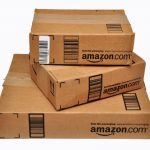
Well, July 15th is behind us and Amazon's promise of deals bigger than Black Friday. If you were looking for Christmas in July, did you get it? I wasn't that impressed with the selection of Lightning Deals and exclusives, but perhaps you were. Or not. My purchase, and call me crazy (some commenter usually does): I plunked down $143.86 for two years of Kindle Unlimited, saving 40 percent off the $9.99 for each of 24 months. The bookstore will become my personal library of sorts. There are many books I would read and reference for my professional writing but not necessarily buy.
Briefly, Amazon offered the 32GB Nexus 6 for $399 and Echo for $129—that's $50 off. The smartphone sold out quick at that price but still remained available for $499 the rest of the day. The other device built up a waitlist before finally being closed out. The 6-inch Kindle sold for $49, discounted from $79, and was still available as Midnight approached here on the West Coast (where I live; BetaNews offices are Eastern Time).
What is San Diego Comic-Con really about?

Tomorrow night begins my seventh sojourn to the greatest geekfest and pop-culture event on the planet. Imitator shows are everywhere this Century, but none commands character and class like the original. San Diego Comic-Con is an amazing amalgamation of hopes and aspirations—and the grandest storytelling—where, for four days and a Preview Night, tens of thousands of people can be themselves—fit in, rather than feel oddball—or be whom they would want to be by dressing up as beloved superheroes or villains and by adoring the storytellers and actors behind them.
The first, full three-day event took place from Aug. 1-3, 1970, at the U.S. Grand Hotel, with about 300 attendees and sci-fi luminaries, including Ray Bradbury and A.E. van Vogt. This week, 130,000 attendees will storm San Diego Convention Center to enter an alternate reality, where the social rules binding them everyday no longer apply.
Could 13-inch MacBook Pro Retina Display with Force Touch trackpad be right for you? [Review]

Reviewing most any MacBook Pro is a pointless exercise, because this year's model isn't much different from the previous—or the one before. That's why I typically buy refurbished rather than new. But I broke with that practice last month, after a sudden electrical calamity laid my wife's laptop to rest. Fried and died it is. With Apple releasing new versions of iOS and OS X and launching a streaming music service, a summer sojourn seemed opportune.
I considered going Windows 10, which arrives later this month. But most of my BetaNews colleagues are headed that way, so I set out down the Apple reviews track. Again, I probably wouldn't have done so if not for my wife's computer catastrophe. I lent her my Chromebook Pixel LS and purchased a new MBP. She will never give up the Google laptop, BTW.
iPhone is iconic
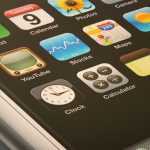
Happy Birthday! iPhone is 8 years-old today. Oh my, it seems so much longer ago because so much has changed. Think back. Eight years ago, there was no Android. YouTube was but 18 months available to the public, and Facebook or Twitter only about a year. There was no market for tablets, or smartwatches.
The iPhone marks everything right about the Steve Jobs era of risk-taking design. More changes: He is gone from this world and some of that other-worldly innovation with him. In 2007, the smartphone was a decade-old slow seller that few people owned. Now it's everywhere! Apple deserves credit for the transformation, whether or not anyone wants to give it.
Here's what you REALLY THINK about Windows 10

Let the countdown begin. One month from today, July 29th, Microsoft releases Windows 10. Three weeks ago we asked what you like about the operating system. Many of you are testers, and keeping with the spirit of the "beta" in our site's name, we just had to inquire.
Microsoft hasn't made this transition easy enough, even before the code's release. For starters, there is, or was, or may still be, or may never stop being, confusion over who is eligible for the free upgrade. Microsoft kind of, sort of, clarified who gets and who doesn't -- and those of you who are Windows Insiders, and remain so, can continue on the forever free track, albeit running betas. Based on our poll posted last week, 10 percent of you without valid licenses will stay with the Windows Insider program to keep the free software coming. More than half of you plan to stick with the testing track.
The difference between Apple Watch (stainless steel) and Sport (aluminum)

After spending 7 days with Apple Watch Sport -- and largely enjoying it -- time comes to test the next pricier model. When trying to compare the two, I find very little useful from Internet searches. So a primer is in order for other folks also wondering: Which one is right for me? Ultimately, the best answer will come from going into an Apple Store (if there is one nearby) and putting the timepieces on your wrist.
Last week, I compared Android Wear and Apple Watch platforms, starting from the different design ethics behind them. Obviously, timepieces from the bitten-fruit logo company are more alike, with the main differences being materials, pricing, and target customers. Interestingly, the combinations offer subtle changes in benefits that will matter much to some shoppers. Henceforth, I will refer to the devices as Sport, for the aluminum model, and Apple Watch for the stainless steel sibling.
Now that Apple Music pays, will Taylor Swift and independents play?

As my colleague Manish Singh reports overnight, Apple reversed course and now plans to compensate artists for the first three months of music streaming. It's time to ask: Were the whiners grandstanding or sincere? The question mainly is meant for Taylor Swift, whose Father's Day Tumblr post seems to have brought, eh, swift response to the—what I call—"play for no-pay" plan.
The company unveiled Apple Music during the World Wide Developer Conference on June 8. The streaming service will be free to subscribers for the first three months, with Apple initially choosing not to make royalty payments to artists. I condemned the ridiculous strategy last week. The company sits on a nearly $200 billion cash horde, and content creators are among its most loyal customers. Stiffing them makes no sense from several different perspectives, with good public relations being one and expressing thanks to artist customers being another.
The difference between Apple Watch and Android Wear
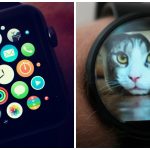
This week, I had opportunity to use Apple Watch, making it third of the modern smart variety that I have experienced (the others being LG Urbane and Moto 360). The differences between the platforms are quite startling and worth highlighting. They begin with diverging design ethics derived from the fruit-logo company's app-centric heritage and Google's place in the cloud.
For people who use either Android handset or iPhone, existing device really determines what watch platform you choose, if any—that is for now. Down the path you go. But where it leads is somewhere else, not the same destination. One platform is more responsive to you in varying contextual situations. The other requires more direct interaction, but gives other benefits.
Apple Music shouldn't steal artist royalties

For a company that generates more profits than any other ($18 billion during fiscal first quarter 2015), sits on a cash horde of nearly $200 billion, and has the gall to charge $150 for a watchband, stinginess is an unbecoming trait. Scratch that. Greediness. Putting profits before people, particularly devoted customers, when corporate advertising is all about how they matter more, is simply stupid public relations. In business, perception is everything.
So Apple's reported decision to give away music for three months, without compensating artists, is cheapskates behavior that demands criticism -- particularly about a company claiming that music means so much. Speaking to developers last week, CEO Tim Cook: "We love music, and music is such an important part of our lives and our culture". Oh yeah? If it's so important, why diminish its value? To zero. "We've had a long relationship with music at Apple". For how much longer without artists' cooperation? You don't own the content, Mr. Cook.
Apple Music is the Tim Cook 'One More Thing' we waited for
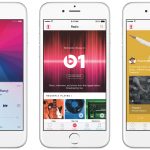
Seven days ago, CEO of the most valuable, publicly-traded technology company on the planet unveiled a potentially category-changing online streaming service. In 15 more, you will be able to subscribe -- three months for free. Pundits wave the Spotify flag and spit out diatribes of disgust, much as they did when Apple launched iPhone eight years ago or iPad in 2010. Wrong again is their destiny. Will they ever learn?
Many of the doomsayers forget, or maybe just ignore, the fruit-logo company's success disrupting category after category. They also start out from a misguided premise: That Apple is a latecomer who cannot catch up with competitors like Spotify. How ridiculous. iTunes debuted in January 2001, iPod nine months later, and iTunes Music Store in April 2003. By longevity and reach, which includes exclusives (like The Beatles) and large catalog, Apple is the status quo. On June 30, the giant awakes, and the smidgens shake as it walks.
Joe's Bio
Joe Wilcox is BetaNews executive editor. His motto: Change the rules. Joe is a former CNET News staff writer, JupiterResearch senior analyst, and Ziff Davis Enterprise Microsoft Watch editor.
Ethics StatementBetaNews, your source for breaking tech news, reviews, and in-depth reporting since 1998.
© 1998-2025 BetaNews, Inc. All Rights Reserved. About Us - Privacy Policy - Cookie Policy - Sitemap.
